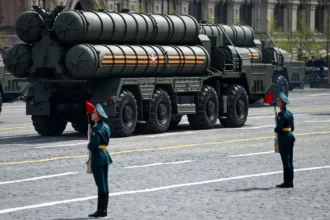Israel has enlisted the services of Palantir Technologies to enhance its AI surveillance capabilities in Gaza, a move that has significant implications for the ongoing conflict and the civilian population. Palantir, a company known for its advanced data analytics and surveillance technologies, has been providing Israel with AI-powered military and surveillance technology support.
Capabilities and Impact
Palantir’s involvement includes the deployment of AI systems that assist in target identification and surveillance. These systems use machine learning algorithms to analyze vast amounts of data, including surveillance footage, intercepted communications, and social media activity. The goal is to identify potential threats and suggest targets for military action.
- Target Identification: Palantir’s AI tools help Israeli forces identify and prioritize targets by analyzing patterns and correlations in the data. This includes assessing the likelihood of individuals being associated with militant groups and recommending them as targets.
- Surveillance and Data Collection: The systems rely on extensive surveillance networks, including cell tower triangulation and other monitoring tools, to track the movements of individuals in Gaza. This data is used to inform military decisions and actions.
- Predictive Policing: Palantir’s predictive policing algorithms are used to anticipate and preempt potential threats. This involves assigning risk scores to individuals based on their perceived likelihood of being involved in militant activities.
Controversies and Criticisms
While Palantir’s technologies offer Israel enhanced capabilities in surveillance and target identification, they have also sparked controversy and criticism:
- Civilian Casualties: The use of AI in targeting has been linked to an increase in civilian casualties. Critics argue that the reliance on AI systems, which may not always accurately distinguish between combatants and non-combatants, contributes to the high number of civilian deaths.
- Human Rights Concerns: Human rights organizations have raised concerns about the compatibility of Israel’s surveillance practices with international human rights law. The systematic surveillance of Palestinian residents in Gaza has been described as incompatible with human rights standards.
- Bias and Accuracy: There are questions about the accuracy and potential biases in the AI systems. Critics point out that AI tools can exacerbate existing biases and are prone to making mistakes, which can have fatal consequences.
- Military Dependence: Israel’s increasing reliance on AI and surveillance technologies has raised questions about the role of human judgment in military decisions. Some argue that over-reliance on AI could lead to a dehumanization of the decision-making process.
In conclusion, Israel’s use of Palantir’s AI surveillance technologies in Gaza has provided enhanced capabilities for target identification and surveillance but has also raised significant concerns about civilian casualties, human rights, and the accuracy of AI systems. As the conflict continues, the role of AI in warfare and its impact on civilian populations will likely remain a contentious issue.














